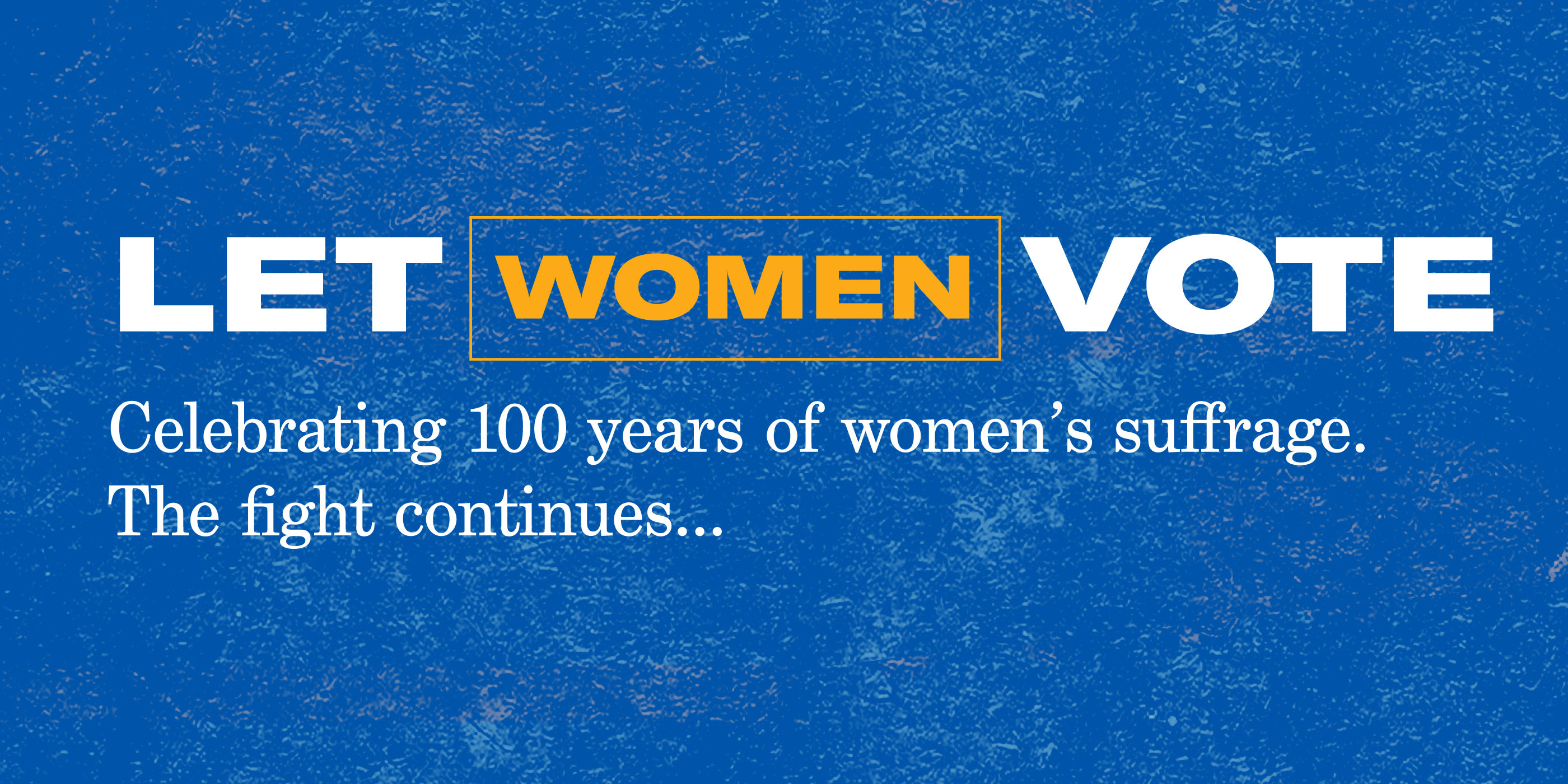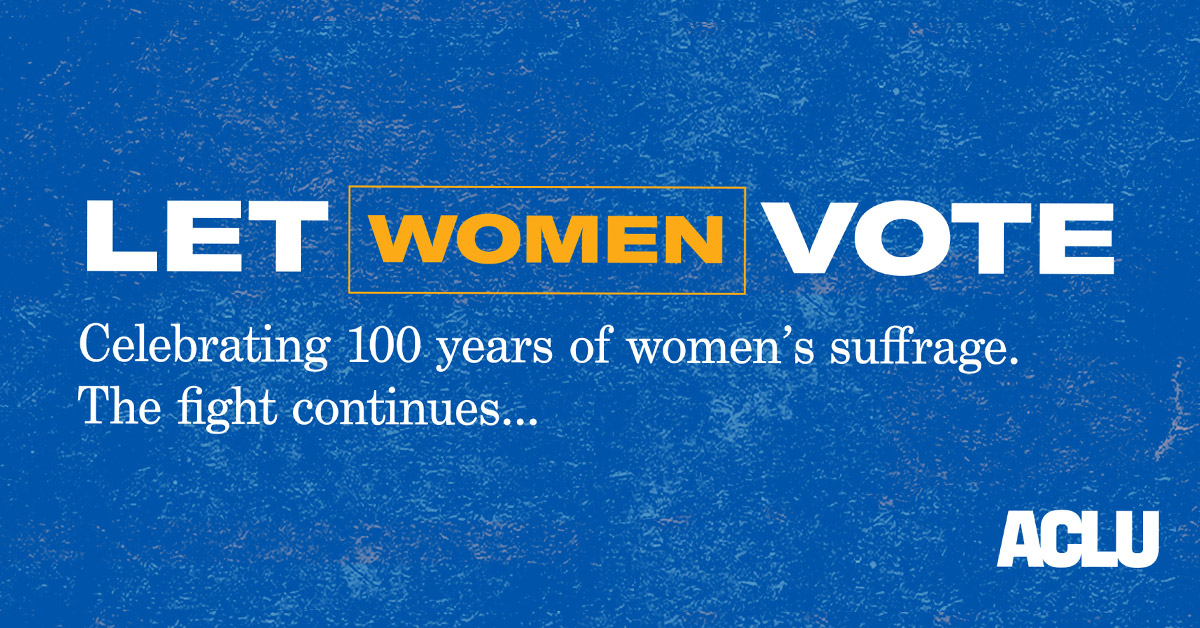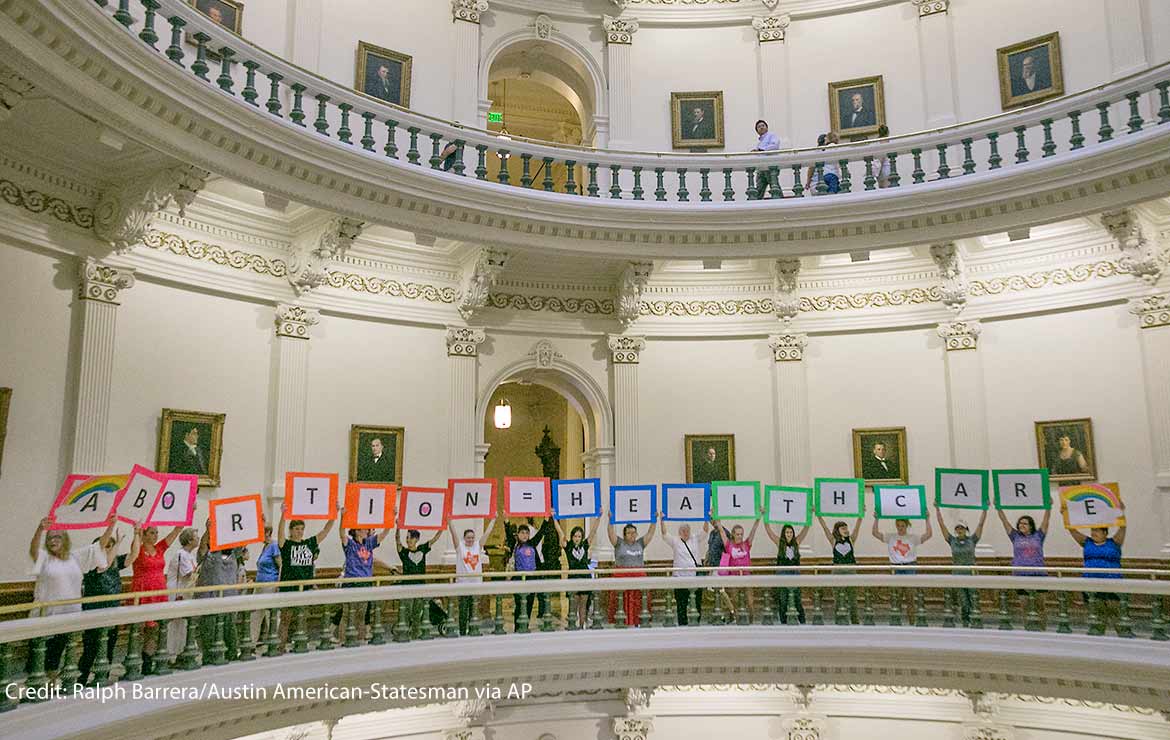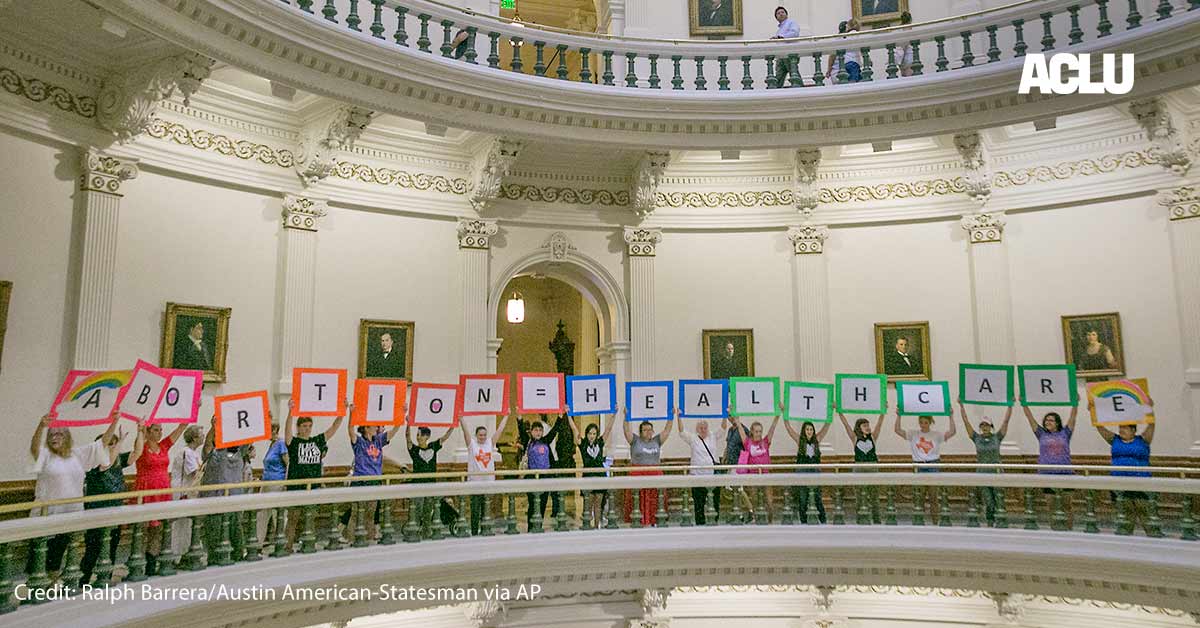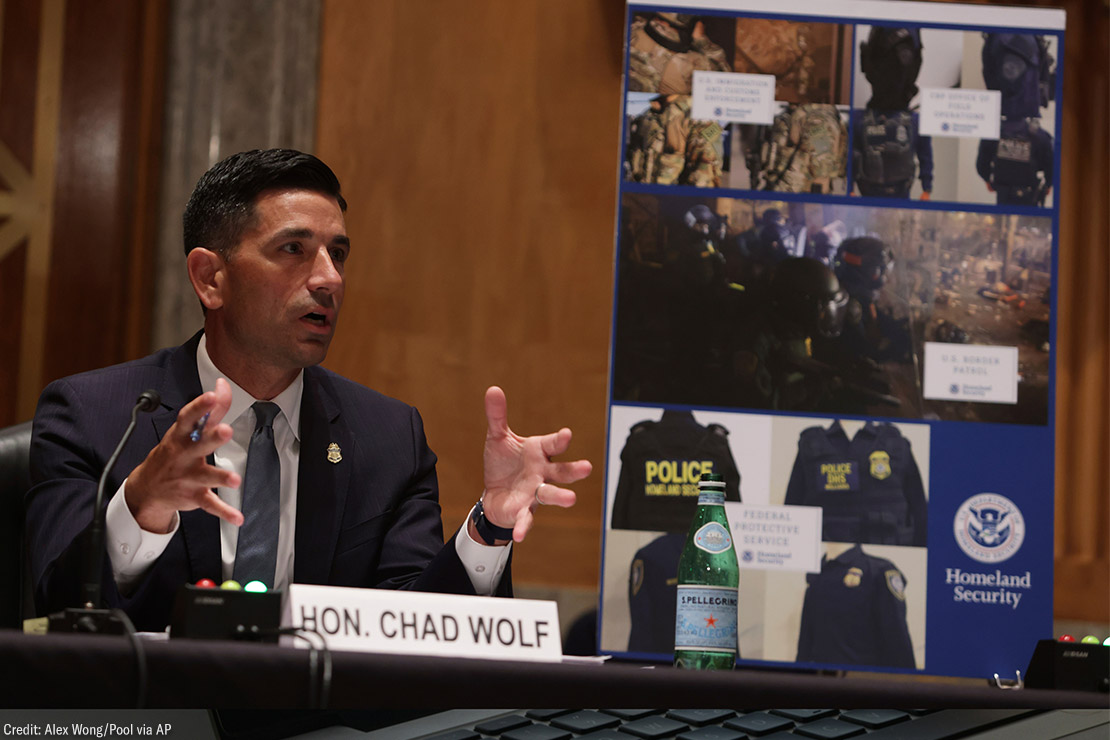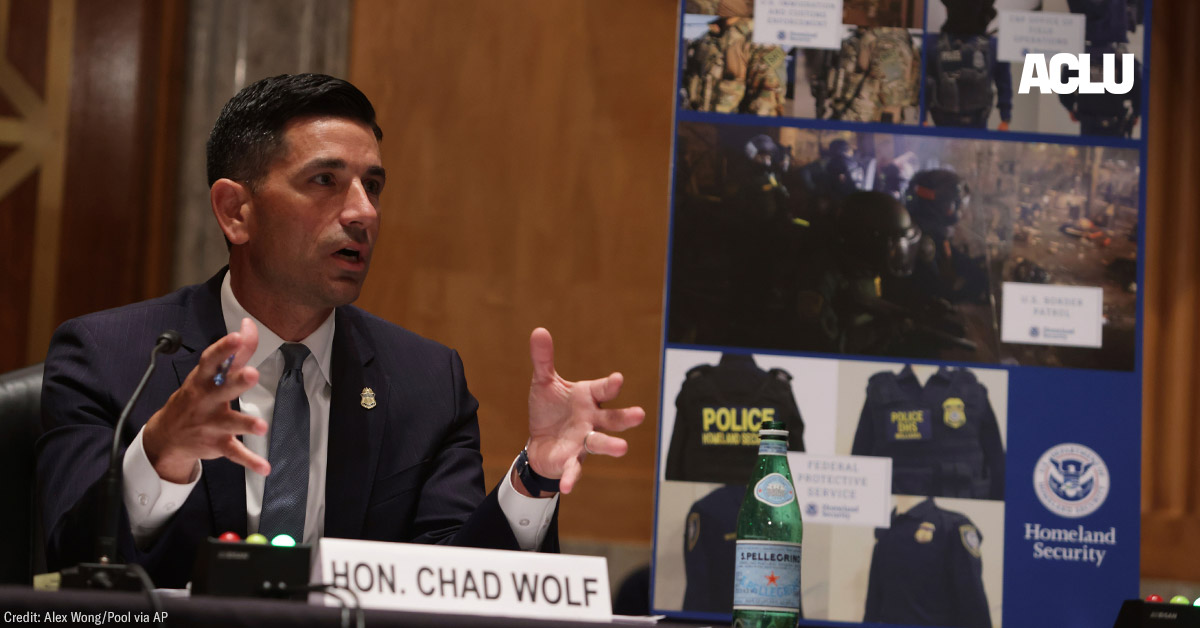When the 19th Amendment, ratified on August 18, 1920, finally allowed women to vote, ACLU founder Crystal Eastman, an ardent suffragist, was not interested in a victory celebration. She wanted women to use their newly minted political power to promote true freedom and equality, regardless of sex. “Now We Can Begin,” she urged, in a still-renowned speech.
But the adoption of the 19th Amendment did not actually enable all women to vote. Black women and other women of color still had to confront laws and practices designed to keep them from voting —despite the fact that the 15th Amendment, in 1870, had already prohibited the denial or abridgment of the right to vote on the basis of race, color, or previous condition of servitude. And today, 150 years after the 15th Amendment’s declaration of equal rights, racist voter suppression is still rampant.
It’s wonderful to celebrate the 19th Amendment’s centennial, but it’s not enough. We need to finish the job of the voting rights activists who fought for both the 15th and 19th Amendments.
Let People Vote
The Constitution says clearly that women and people of color have a legal right to vote. But theory is not practice.
For many decades, the ACLU has been battling laws that outright disenfranchise some people — like people who are incarcerated and people with certain criminal convictions — or create insurmountable barriers for others, especially Black and Brown women and men, Native Americans, and people with disabilities. We’re currently working in 30 states to fight pernicious voter ID laws, illegal purges of voters from the voting rolls, and malicious limitations on voter registration, all of which tend to have an intentionally disproportionate and exclusionary impact on Black and Brown voters.
Adding to this plague of voter suppression, COVID-19 is creating further barriers and unevenly affecting our electoral process.
COVID-19 is a highly contagious disease to which everyone is susceptible, and there is still no vaccine. Its symptoms vary — from the most severe to the least detectable — leaving many prospective voters anxious to use mail-in or drop-off ballots or at least be assured that conditions at their polling places will minimize their exposure to the virus.
No one should have to choose between their vote and their health, as voters in some states have already been forced to do. The Wisconsin state legislature, for example, refused to take the logical step of expanding absentee balloting for the state’s April election — despite the fact that a state-wide stay-at-home order was in effect. Determined voters waited in line for hours to vote in crowded polling places, especially in densely populated cities. In Milwaukee, only 5 of 180 polling places were open. In the days following the election, over 50 Milwaukee voters and poll workers tested positive for the virus. And turnout numbers from the city of Milwaukee showed a massive decrease, from over 167,000 voters in 2016 to just over 95,000 voters this year.
This is discriminatory voter suppression in a new guise. The population in Milwaukee is 40 percent Black, while the population of the state as a whole is 6 percent Black. Black and Brown communities are disproportionately impacted by the virus, and thus would have an additional reason to feel dissuaded from voting under the kind of conditions the Wisconsin legislature condoned. Wisconsin is a frightening harbinger of how unrepresentative the November election could be if we don’t act now to protect everyone’s right to vote.
Most states have agreed to make mail-in ballots and expanded early in-person options available to every voter, which could keep lines shorter and increase accessibility options for many. But some have not. It was only after extensive litigation that Alabama, for example, agreed to make mail-in-ballots available to all of their voters during the pandemic. Other states, like Texas, have persuaded their state courts to allow them to enforce in-person voting with only limited exceptions.
Many states that do allow voting by mail nevertheless insist on maintaining requirements which, during a pandemic, can be daunting hurdles to voting from home, especially for people who live alone: mandating that a mail-in ballot be signed by a live witness, or notarized, or accompanied by a specified kind of photo ID that could require an in-person trip to the DMV — or be hard to obtain if DMV offices are closed.
Requiring people to tolerate unequal levels of risk of infection in order to vote during a pandemic is a new, opportunistic form of the insidious voter suppression we’ve been battling all along.
What You Can Do
Crystal Eastman would be gratified to know that the ACLU has more than just begun: For 100 years, we’ve been honoring our founders through our work toward equality, now including ensuring that voting is safe, accessible, and inclusive in this perilous time. And now you can begin — or continue what you’ve already been doing, to realize the promise of both the 19thand 15th Amendments:
- Ask your member of Congress to support mandating universal access to voting by mail and early voting, provide the necessary funds for states to implement these changes, and support the federal VoteSafe Act;
- Learn if you can vote by mail in your state and make a plan to vote;
- Work on voter registration or voter turnout initiatives; and
- Share information and action proposals with your social media and other communities.
And when you exercise your own right to vote, vote like your rights depend on it! They do.
Susan N. Herman, President, ACLU
Date
Tuesday, August 18, 2020 - 11:30amFeatured image
